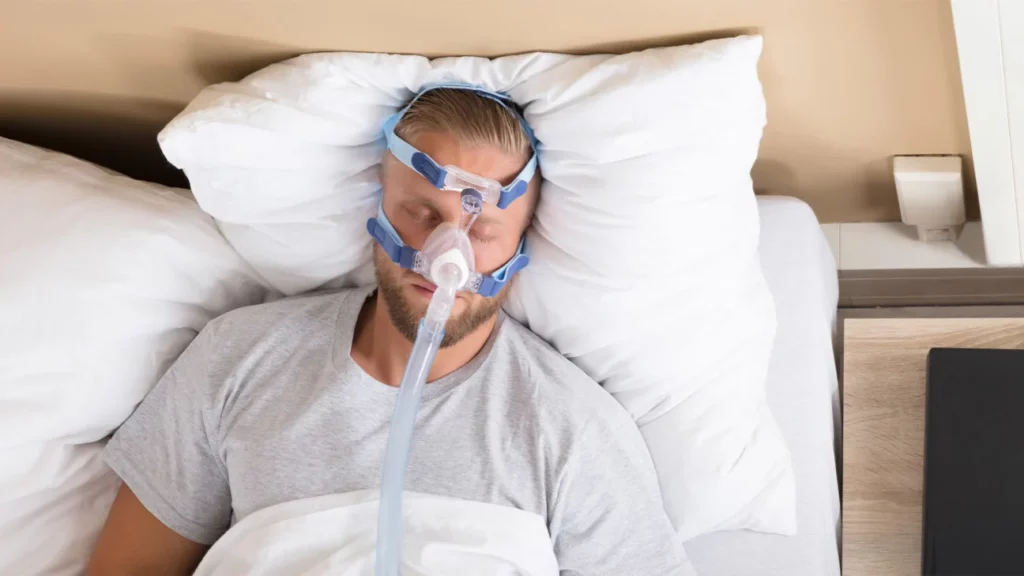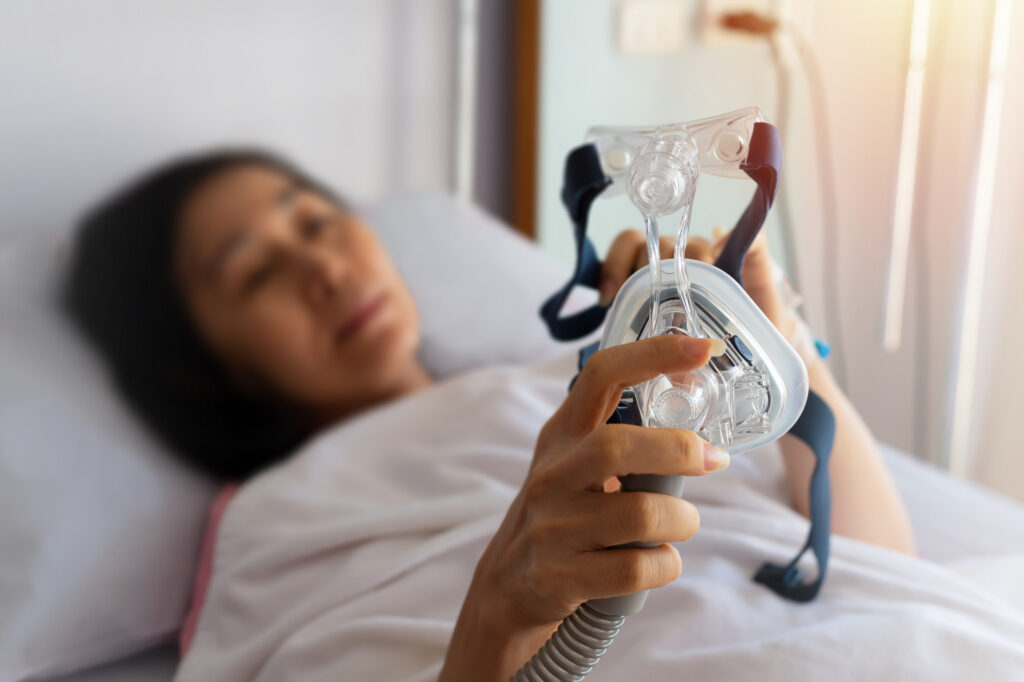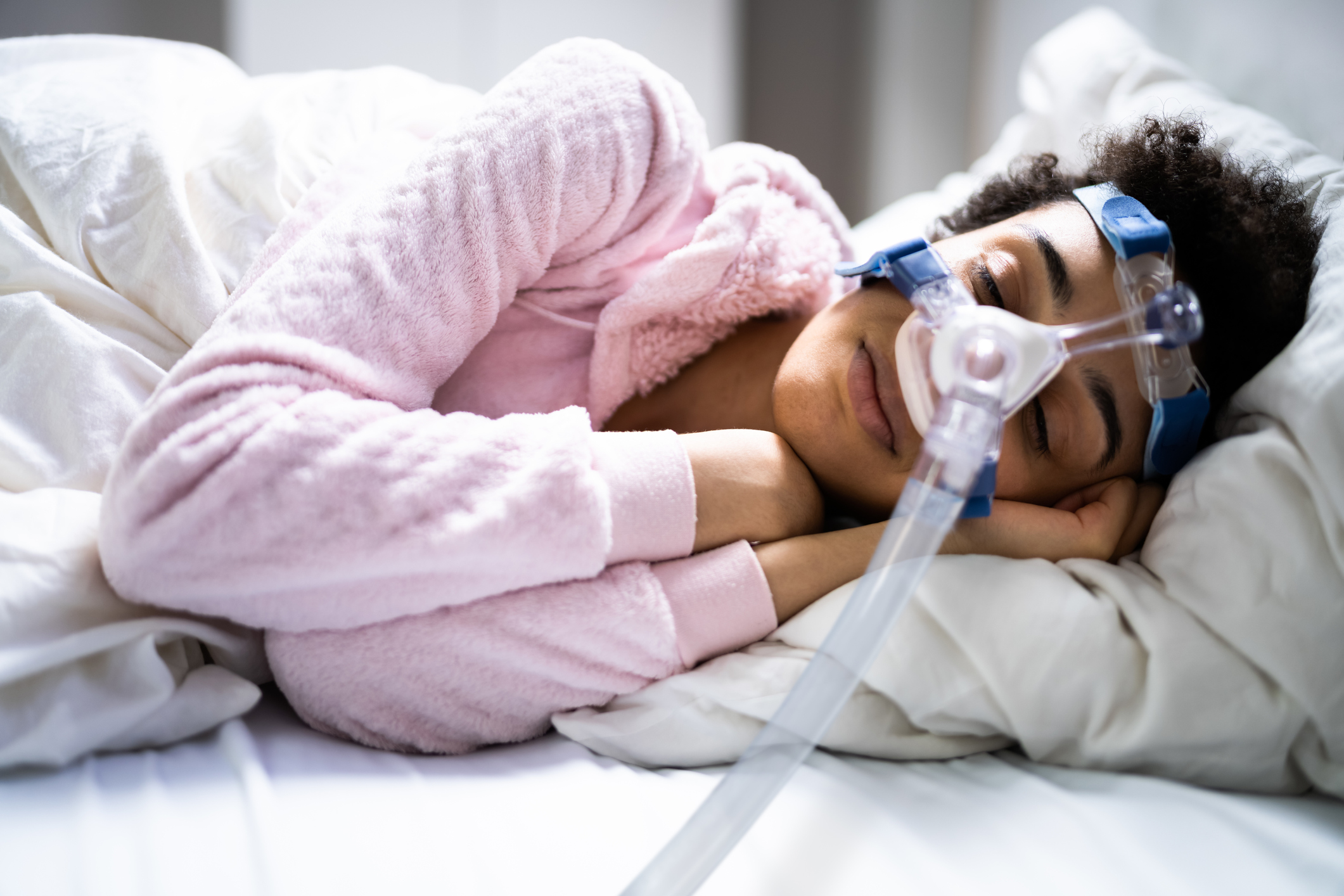Can You Buy CPAP Machines Without a Sleep Study? What You Need to Know
Understanding CPAP Machines
Continuous Positive Airway Pressure (CPAP) machines are essential devices used primarily to treat obstructive sleep apnoea (OSA). These machines work by delivering a steady stream of air through a mask, keeping the airways open during sleep. This not only helps individuals breathe more easily but also significantly improves the quality of sleep.
For many, CPAP therapy is a life-changing solution. However, the process of obtaining a CPAP machine can sometimes be confusing, especially regarding the necessity of a sleep study. Understanding the role of a sleep study in the diagnosis and treatment of sleep apnoea is crucial for anyone considering CPAP therapy.
Sleep studies, also known as polysomnography, are comprehensive tests that monitor various body functions while you sleep, including brain activity, eye movement, heart rate, and oxygen levels. These studies can be conducted in a sleep lab or, in some cases, at home with portable monitoring devices. The results from these studies provide invaluable insights into the severity of sleep apnoea and help healthcare professionals tailor a treatment plan that best suits the individual’s needs. It is important to note that not all sleep disorders are the same; thus, a thorough evaluation is necessary to determine the most effective intervention.
In summary, while it is technically possible to buy CPAP machine without a sleep study, it is not advisable. A proper diagnosis is essential to ensure effective treatment and to avoid potential health risks. Exploring alternative options, such as telehealth consultations and home sleep tests, can provide individuals with the necessary support to obtain a CPAP machine safely.
Once a diagnosis is made, the journey with a CPAP machine begins. Users may initially find it challenging to adjust to wearing a mask while sleeping, but many report a significant improvement in their overall well-being after a short acclimatisation period. Regular follow-ups with healthcare providers can help users optimise their CPAP settings and address any concerns, such as mask fit or comfort. Additionally, many modern CPAP machines come equipped with features like humidifiers and built-in data tracking, which can further enhance the user experience and ensure effective therapy.

What is a Sleep Study?
A sleep study, also known as polysomnography, is a comprehensive test used to diagnose sleep disorders. During this study, various body functions are monitored while the patient sleeps, including brain activity, eye movement, heart rate, and breathing patterns. This data helps healthcare professionals determine if a patient has sleep apnoea or other sleep-related conditions.
Typically conducted in a sleep clinic, a sleep study can also be performed at home using portable monitoring devices. The results of the study are crucial in deciding the appropriate treatment, including whether a CPAP machine is necessary.
Types of Sleep Studies
There are two main types of sleep studies: in-lab polysomnography and home sleep apnoea testing (HSAT). In-lab studies provide comprehensive data, including oxygen levels and airflow, while HSATs are more focused, often measuring only the most critical parameters for diagnosing obstructive sleep apnoea.
In-lab studies are generally more accurate and are recommended for complex cases or when other sleep disorders are suspected. Conversely, HSATs are convenient and cost-effective, making them a popular choice for straightforward cases of suspected OSA.
Learn about cpap mask at: How Often Should You Replace Your CPAP Mask and Accessories
Do You Need a Sleep Study to Get a CPAP Machine?
The short answer is: it depends. In most cases, a sleep study is required to obtain a prescription for a CPAP machine. This is because the diagnosis of obstructive sleep apnoea must be confirmed before treatment can begin. Without a proper diagnosis, there is a risk of misdiagnosing the condition and potentially causing harm by using a CPAP machine unnecessarily. Find more about risk on https://pmc.ncbi.nlm.nih.gov/articles/PMC8275831/
However, there are some exceptions to this rule. Some individuals may choose to purchase CPAP machines without a prescription through online retailers or second-hand markets. While this may seem like a convenient option, it is important to understand the potential risks involved.

Risks of Buying CPAP Machines Without a Prescription
Purchasing a CPAP machine without a prescription can lead to several issues. First and foremost, the machine may not be set to the correct pressure settings for the individual’s needs, which can result in ineffective treatment or even exacerbate existing health issues. Additionally, without professional guidance, users may struggle to find the right mask fit, leading to discomfort and poor adherence to therapy.
Moreover, using a CPAP machine without proper medical oversight can mask underlying health problems that may require different treatments. It is always advisable to consult a healthcare professional before starting any form of therapy.
Alternative Options for CPAP Therapy
For those who may not have access to a traditional sleep study, there are alternative options available. Some healthcare providers offer telehealth services that can facilitate remote consultations and assessments. This can be especially beneficial for individuals living in remote areas or those with mobility issues.
Additionally, some home sleep testing kits can be obtained through online platforms. These devices allow individuals to conduct a sleep study in the comfort of their own homes, providing valuable data that can be reviewed by a healthcare professional.
Telehealth and Remote Consultations
Telehealth has become increasingly popular, especially in the wake of the COVID-19 pandemic. Many healthcare providers now offer remote consultations, allowing patients to discuss their symptoms and concerns from home. This can be a convenient option for those who may find it challenging to visit a clinic in person.
During a telehealth consultation, a healthcare professional can assess symptoms, recommend further testing if necessary, and discuss the potential need for a CPAP machine. This approach can streamline the process and provide patients with timely access to care.
Choosing the Right CPAP Machine
Once a diagnosis of obstructive sleep apnoea has been confirmed, selecting the right CPAP machine is the next crucial step. There are various types of CPAP machines available, each designed to cater to different needs and preferences. Understanding the features and options can help individuals make an informed choice.
Some of the key factors to consider when choosing a CPAP machine include pressure settings, noise levels, portability, and additional features such as humidifiers and data tracking capabilities. Consulting with a healthcare provider can help guide the selection process and ensure the chosen machine meets the individual’s specific requirements.
Types of CPAP Machines
There are several types of CPAP machines available on the market. The most common type is the standard CPAP machine, which delivers a continuous stream of air at a fixed pressure. Another option is the auto-adjusting CPAP (APAP) machine, which automatically adjusts the pressure throughout the night based on the user’s needs. To learn more about pressure click here.
Additionally, there are BiPAP machines that provide two levels of pressure: a higher pressure during inhalation and a lower pressure during exhalation. This can be beneficial for individuals who find it difficult to exhale against the continuous pressure of a standard CPAP machine.
Maintaining Your CPAP Machine
Proper maintenance of a CPAP machine is essential for ensuring its effectiveness and longevity. Regular cleaning and replacement of components, such as masks and filters, are crucial for optimal performance and to prevent infections.
Most manufacturers provide guidelines on how to clean and maintain their devices. Following these instructions can help users avoid complications and ensure they receive the full benefits of their CPAP therapy.
Cleaning and Care Tips
Cleaning the CPAP mask daily is vital to prevent the buildup of bacteria and ensure a comfortable fit. The machine itself should be cleaned regularly, and the water chamber for the humidifier should be emptied and dried daily. Additionally, filters should be checked and replaced as needed to maintain airflow quality.
Investing in a CPAP cleaning device can also simplify the maintenance process. These devices use UV light or ozone to disinfect the equipment, making it easier to keep everything clean and hygienic.
Conclusion
Ultimately, the goal of CPAP therapy is to improve sleep quality and overall health. By following the appropriate steps and seeking professional guidance, individuals can successfully navigate the process of obtaining and using a CPAP machine.

